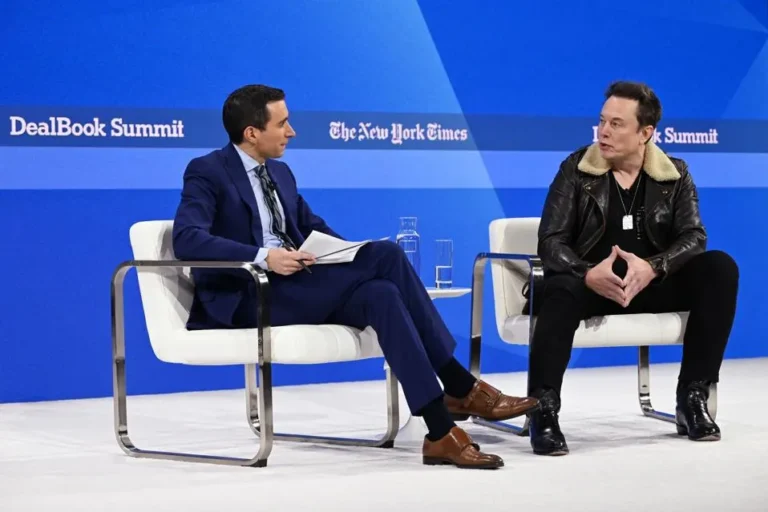Dean DeBiase is a best-selling author and Forbes Contributor reporting on how global leaders and CEOs are rebooting everything from growth, innovation, and technology to talent, culture, competitiveness, and governance across industries and societies.

Women-Led Web3 Startups To Watch In 2023

By Dean DeBiase
April 4th, 2023
People often ask me: “What is Web3?
My short answer, which I elaborate on in my ‘What The Zuck’ article and keynotes, is always—you are!
Why? Because the promise of Web3 flips the ownership model and gives the money and the power back to you.
Social media has deteriorated in many countries—especially for women—and the tech. and media oligopolists love it. These media landlords like TikTok, Facebook, Instagram, Google, Twitter, Apple, et al. have taken control of everything we do, say, share, post and buy online—and they are not very excited about the changes Web3 can usher in to their market.
Want proof? While TikTok’s CEO Shou Chew was grilled by U.S. lawmakers in Washington—his former product head had this to say this about creators: “Platforms don’t really care if you are successful…because their metrics are 100 percent focused on retention, publish rates, active days. Monetization of creators is not even on there. It’s like way, way, way down here. It’s like a little afterthought.”
Web Evolution Vs. Revolution
For some context let’s look at an internet trajectory, as it is attempting to move from the evolutionary stages of Web 1.0 and 2.0, that most of us have lived through, to a revolutionary Web3 future:
Web 1.0 was the first iteration of the internet continues to be the foundation of what we use today. As you may remember, it was mostly read-only static content and with old media business models.
Web 2.0 consolidated the power with centralized landlords and business models that are monetizing the masses with more social sharing, creation, and enablement platforms.
Web3 is trying to take us to a democratized, creator/owner phase of the internet, where power shifts from big tech and media oligopolies to individuals. Rather than using platforms in exchange for our data, users could have more power, governance, and control over assets, where we could be participants, owners, and shareholders.
Web3 Looks Good, Sounds Fun—Right?
Maybe. As we are witnessing, many of our Web 2.0 landlord gatekeepers, who, to their credit, have each invested billions to get the Internet to where you enjoy it today, are not overly excited about Web3—or likely any model they can’t control or make money on. The U.S. government has labeled Google a monopoly and continues to question their rights and practices. With a global market share of over 90%, Google brought in $168B in ad revenue last year alone—and is fighting governments around the world to keep that control.
While I believe it will be years for platforms and technologies to completely adapt to some version of Web3’s decentralization, participative ownership, identity, security and blockchain policies—it has created a new blue ocean of reboot opportunities for hundreds of startups. It also opens possibilities for the next generation to create a more equitable world where most everyone can have a voice.
One Web3 developing trend to watch is sites, platforms and brands for women, like search engine Diem, creator/venture builder Women in Web3, educational group Unstoppable Women, artist/creator site HUG, and women’s social community platform, coto, where I am an advisor.
Rebels With A Cause
I had a discussion with coto’s Founder and CEO, Tarun Katial, who is also a previous student at Kellogg/Northwestern. Turns out he was actually planning a streaming platform for women during the pandemic, when he discovered there was an avenue for women that is more personal and private that needs a better platform—social media. Like others in the industry, he and his rebel co-founders, Aparna Acharekar and Rajneel Kumar agreed that it is, by and large, not a safe space for women in many countries with trolling and harassment rampant, and consequently, women cannot express themselves freely.
A Need For Changes Globally
Users, industry insiders, regulators and global leaders also agree, and see a need for action and change. When commenting on potential regulation guidelines in her country, UK’s former Secretary of State for Education and Minister for Women and Equalities, and Secretary of State for Digital, Culture, Media and Sport, Nicky Morgan said, “The intention is to get the [social media] platforms to think about how to keep female users safe…they are not thinking about the safety of female users.”
In today’s internet, where clicks and views matter more than a person’s sanity, that is where platforms should draw the line. And with Web3 facilitators, like coto, women can safely do and say what they want, find relevant content, and forge meaningful connections.
The best way to describe coto’s difference is a blend of a Reddit community, a Quora space, and a WhatsApp group rolled into a safe space just for women. Women can join themed communities that resonate with them and have conversations on topics that they may hesitate to discuss otherwise, owing to stigma and fear of harassment. In line with Web3’s principles of participative ownership, their members can create content, invite people in, and be equal owners in what they create together.
Beyond social, the platform also wants to enable women around business and entrepreneurship, with monetization opportunities to sell their products, services, education, etc. While brands and influencers can establish a presence on the platform, one primary difference is to only connect—not exploit people.
The decision about which brands can be included in a community lies with the community owners—ensuring that brands don’t become overwhelming or controlling. Like other Web3 players, this seems to be a refreshing flip on our current Web 2.0 command and control business models.
Katial observes, “women want to have their own conversation but unfortunately what has happened in the oligopoly era, is platforms still experience trolling.” According to Pew Research Center’s The State of Online Harassment study – Women targeted in online harassment are more than twice as likely as men. “So, 61% of women say online harassment is a major problem. There is also a BBC panorama study about how big tech still promotes harassment content even more because views matter more than people’s sanity. We found there is a need for platforms where women can do and say what they want—with pertinent content and relevant connections that serve and protect women.”
Many experts agree. Marwa Azelmat, a digital rights expert and women’s rights activist, focused on online violence against women and girls, thinks online violence is not taken seriously enough, saying “What happens in the offline space is really reflected in the online space…and just like we don’t feel safe walking on the streets, we no longer feel safe walking on the digital streets.”
These feelings are echoed around the world, a key reason why coto’s mission, providing safe and inclusive spaces for women, is what I now call Web3 table stakes. I think it is particularly crucial in societies where women’s voices are often silenced, and their opinions are not considered.
Do Brands and Advertisers Fit In Web3?
With women’s safety at the core, potentially governing monetization, Web3 providers need to get more creative to insure sustainable growth of these new platforms. With this new mix of creators, influencers, regular people, entrepreneurs and small companies on the platform, I was curious about monetization and business models. “Initially one starts by building a community and expanding their connections, whether you are a brand, a publisher or an influencer. The quality of your community and connections will determine your monetization journey. Then you can decide whether you want to keep it as a free or a paid community”, Katial explains.
Unlike the Web 2.0 oligopoly phase, Web3 sites and communities can make a bigger share of the revenue. However, I think brands and advertisers also need to be in the mix for the revolution to be sustainable. Katail explains, “Creators or entrepreneurs canchoose which brand they want to partner with, set up their own marketplace, and directly reach and monetize a wider audience and grow their business.” I think the emerging business models are refreshing, especially for people who are looking to build something. He adds, “We are only building the infrastructure and eventually it’s your revenue to take home. We will only charge a platform fee and it’s not that we are going to pump you with advertising and keep all of that for ourselves.”
Today, corporate advertisers seem to be overpaying social media platforms to get access to influencers, and the business models seem a bit upside down. It may be that the whole influencer creator model is broken before it even scaled up properly—or maybe it’s the wrong model. Katials view is, “When they [advertisers] buy digital advertising, there is no way to know if they’re actually targeting women or men. All the data will never be able to give you more than 70 to 80% confidence that you actually went on to the right kind of gender. Neither Google nor Facebook can tell you that.” If this comes to fruition, it will solve a mystery brands have been trying to solve for decades.
One can hope. Now that the Internet and the cell phone are 50 years old, you would think technology would stop delivering ads to the wrong gender. Katial thinks a shift is coming, “We are expecting a change in the way brands start to look at communities versus social media. I think that’s a big shift that the brands are starting to make and I am hoping that whether they are selling or engaging with communities, it’s going to be very different than what has been happening.”
Democratization, whether IRL (in real life) or online—which is real life too—is going to be a tough global competition. Web3 platforms, like coto and others, need to play the long game—committed to making it happen. It is critical to the next generation of not just the Internet, but for societies. Who better to lead this revolution than women.






